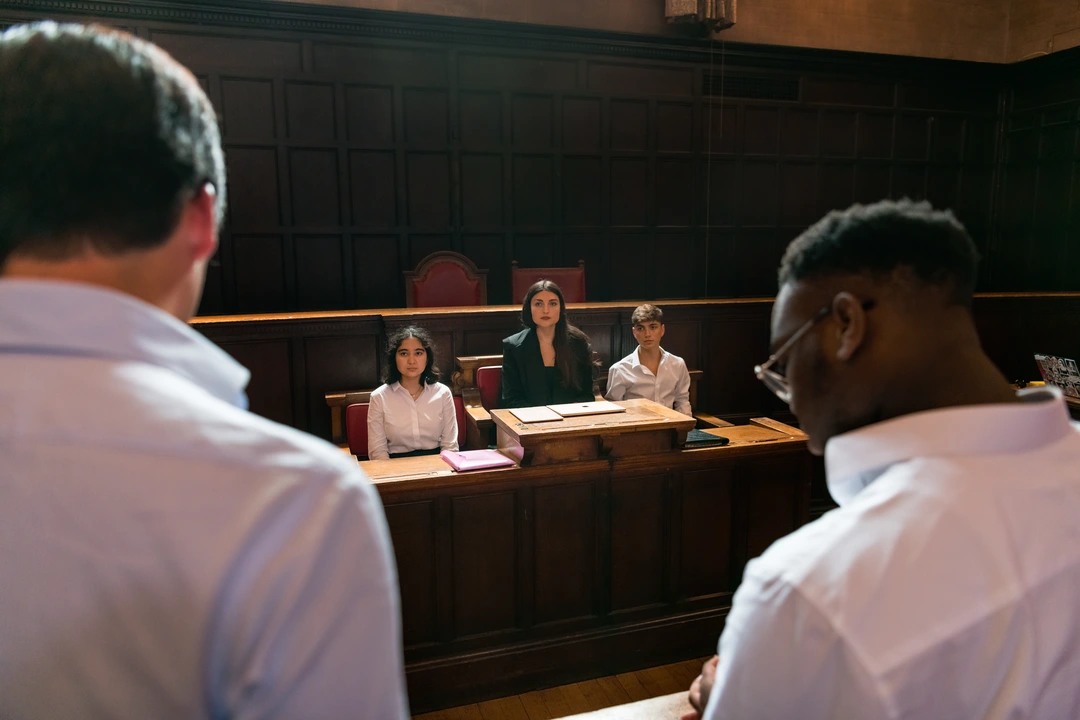While your GCSE subject choices are by no means the be-all and end-all of your academic career, they can have a surprisingly positive impact on your career path if chosen well. If you’re interested in pursuing a legal career, GCSEs can be an important stepping stone on the road to success.
With so much choice, it can be difficult to know which GCSEs are the most relevant, so we’ve put together this article to help you answer the question: which GCSES do you need to become a lawyer?
What Qualifications Do You Need to Become a Lawyer?
Becoming a lawyer in the UK is an intense, but exciting, academic journey. Some of the key steps include:
1. Completing a Bachelor’s degree in Law, or a one-year Graduate Diploma in Law (GDL) if you’d prefer to take a different subject for your undergraduate degree.
2. Taking the Solicitors Qualifying Examination (SQE), and gaining hands-on work experience in the legal industry.
However, you can’t start your university journey without the relevant qualifications to secure an offer (A-level or equivalent), and you can’t acquire these qualifications without first studying for your GCSEs.
Which GCSEs Do You Need for Law School?
To get into law school, students typically need a minimum of five GCSEs. These must include a minimum level 4 or C grade in English Language and Mathematics. It’s a good idea to note this is the absolute minimum, and university courses can be very competitive, so it’s important to aim for the highest grades possible.
Aside from GCSEs, it is also important to demonstrate an invested interest in law as a subject. This could include:
- Participating in mock trials and moot court competitions
- Looking for legal internships (online or in-person)
- Volunteering for local legal organisations
- Attending a Law summer school to gain unique insights into what it’s really like to study Law at university
Spend some time researching available opportunities, and choose something that aligns with your interests and passions!
How Should I Choose My GCSEs for Law?
It can be hard to know which combination of GCSEs will best set you for the future. We recommend considering a variety of core and complementary subjects.

Core GCSEs for aspiring lawyers
English Language and Literature
English is a core GCSE subject for aspiring lawyers. A strong command of English is essential for legal communication, writing and argumentation. The subject nurtures critical reading, interpretation and analytical skills, all crucial for the study of Law.
It’s also important to master the art of persuasive writing and rhetoric if you want to become a lawyer. The study of language and literature can equip you with these skills, and establish firm foundations for any further study.
Mathematics
Mathematics fosters critical analytical and problem-solving skills essential in legal research and case analysis.
Statistics also play a key role in legal practice, especially in fields like criminal law and corporate law. A solid foundation in maths can be really beneficial, especially when handling financial or commercial law cases.
Studying hard at GCSE level will definitely give you an upper hand!
Science
Studying sciences at GCSE level can enhance analytical thinking and logical reasoning, which are both valuable skills in legal argumentation. It can also be helpful in providing a unique perspective when dealing with cases involving scientific evidence or technology.
A deep understanding of scientific topics can also be beneficial in certain legal areas, depending on your choice of specialisation. For example, a career in environmental law, patent law, or health law could require a wider knowledge of science.

Complementary GCSEs for future lawyers
In addition to the core subjects, there are an assortment of other GCSEs that can equip you with specific skills to boost your law school application.
Here are some of our top picks for aspiring lawyers:
Law
This one may seem obvious, but a GCSE in Law or a related subject (if your school offers it) can be a great option! An early introduction to legal concepts can provide an excellent foundation for future legal studies.
By studying Law at GCSE level, students can gain a preliminary understanding of legal systems, rights and responsibilities. Although not essential, it can certainly set you up nicely for the next stages of your educational journey, while simultaneously nurturing your passion for the subject!
History
The study of History at GCSE level fosters critical thinking, research skills and an understanding of social and political developments.
A foundational knowledge of history in general can also be advantageous when dealing with cases related to human rights, international law, or legal precedents.
Foreign Languages
Foreign language proficiency can open many doors, especially in the context of a legal career. In particular, studying foreign languages at GCSE can be significant if you end up in international law, diplomacy or working with diverse clients.
Furthermore, bilingual or multilingual lawyers gain the competitive edge in an increasingly global legal landscape. Beginning to master a language at GCSE level can provide the essential foundations for lifelong language learning.
Psychology
Studying psychology at GCSE level can be extremely relevant for aspiring lawyers. Psychology enhances your understanding of human behaviour, decision-making and motivation. Having access to strong psychological insights can also be advantageous when dealing with cases involving criminal behaviour, mental health or family law.
Politics
A GCSE in politics or political science can also be very useful for future lawyers. This subject provides a knowledge of government systems, policies and legal frameworks, and by having this political awareness, lawyers who choose to specialise in areas such as public law, human rights or constitutional law will benefit immensely.
Economics
Studying economics at GCSE level equips you with an understanding of financial systems, market dynamics and economic policies. Having economic insights such as these can be advantageous in areas of law related to business, trade or financial regulation.

Key Things to Remember When Choosing Your GCSEs to Become a Lawyer
Before you make your final choices, there are a couple of other things to consider.
First of all, make sure to check the specific entry requirements for the law schools or universities you’re interested in! Some universities might have slightly different requirements so make sure to have a look before you finalise your choices.
Mostly, it’s important to recognise that the legal field values a diverse skill set. Think about subjects that develop critical thinking, research, writing and problem solving skills. Choosing a range of GCSEs that cover a variety of skills can be extremely useful in shaping a well-rounded Law applicant.
It’s also a good idea to think about whether or not you have a specific legal area in mind. Is there one that attracts you more than others? If you’re already planning for your future career, make sure your GCSE options fall in with your plans!
You can also seek guidance from teachers, career advisors or lawyers you might know! Take the time to ask questions and get advice, so you feel secure and settled in your choices.
Finally – and arguably most importantly – choose subjects you’re genuinely interested in! If you’re passionate about what you’re studying, the workload won’t feel so heavy, and it will be much easier to study hard and succeed.
At the end of the day, even though the right selection of GCSEs will definitely help you to stand out in law school applications, GCSEs are not the be-all and end-all. The most important thing you need is a passion for law and a genuine interest in the subject. The rest can follow!

By Jessica Mason





